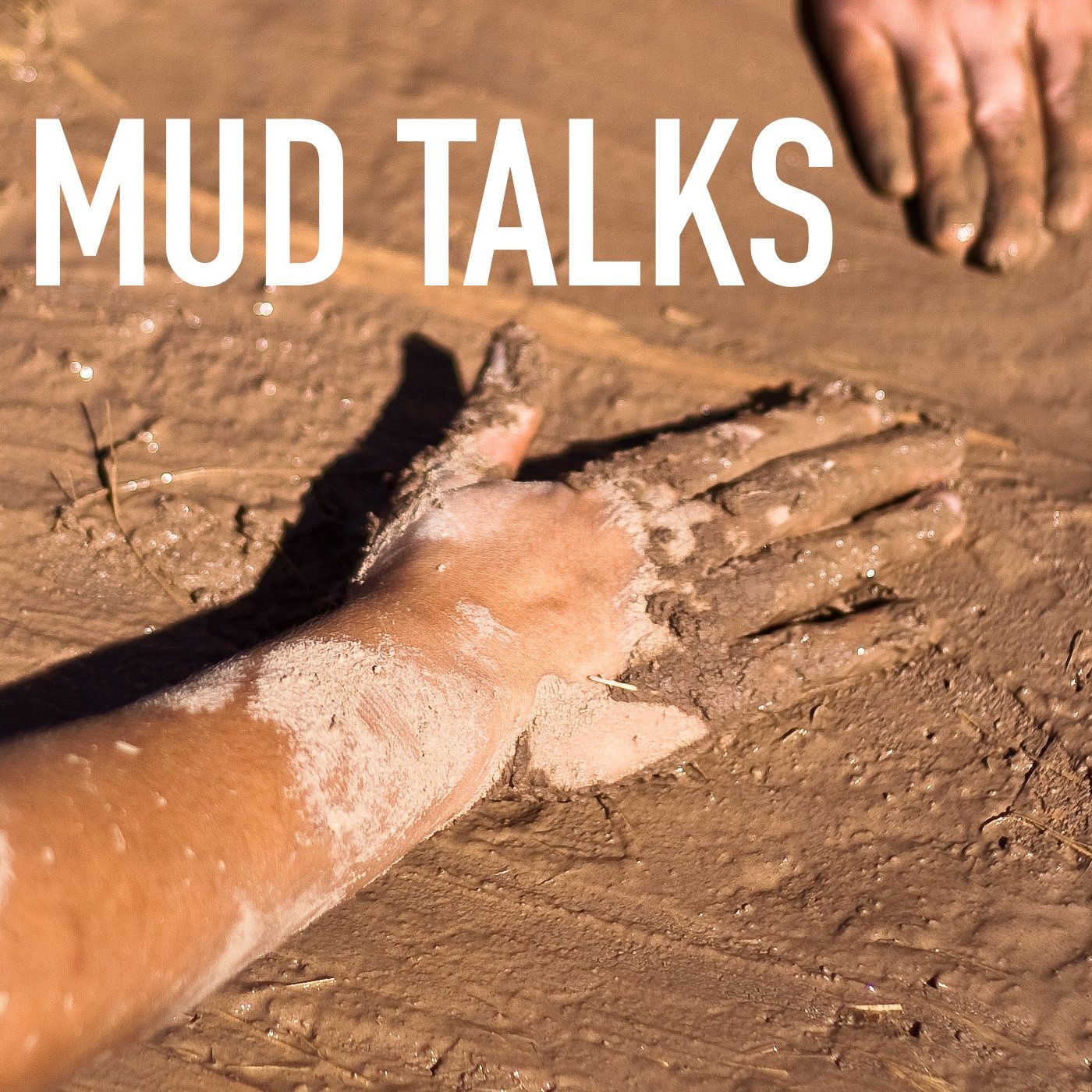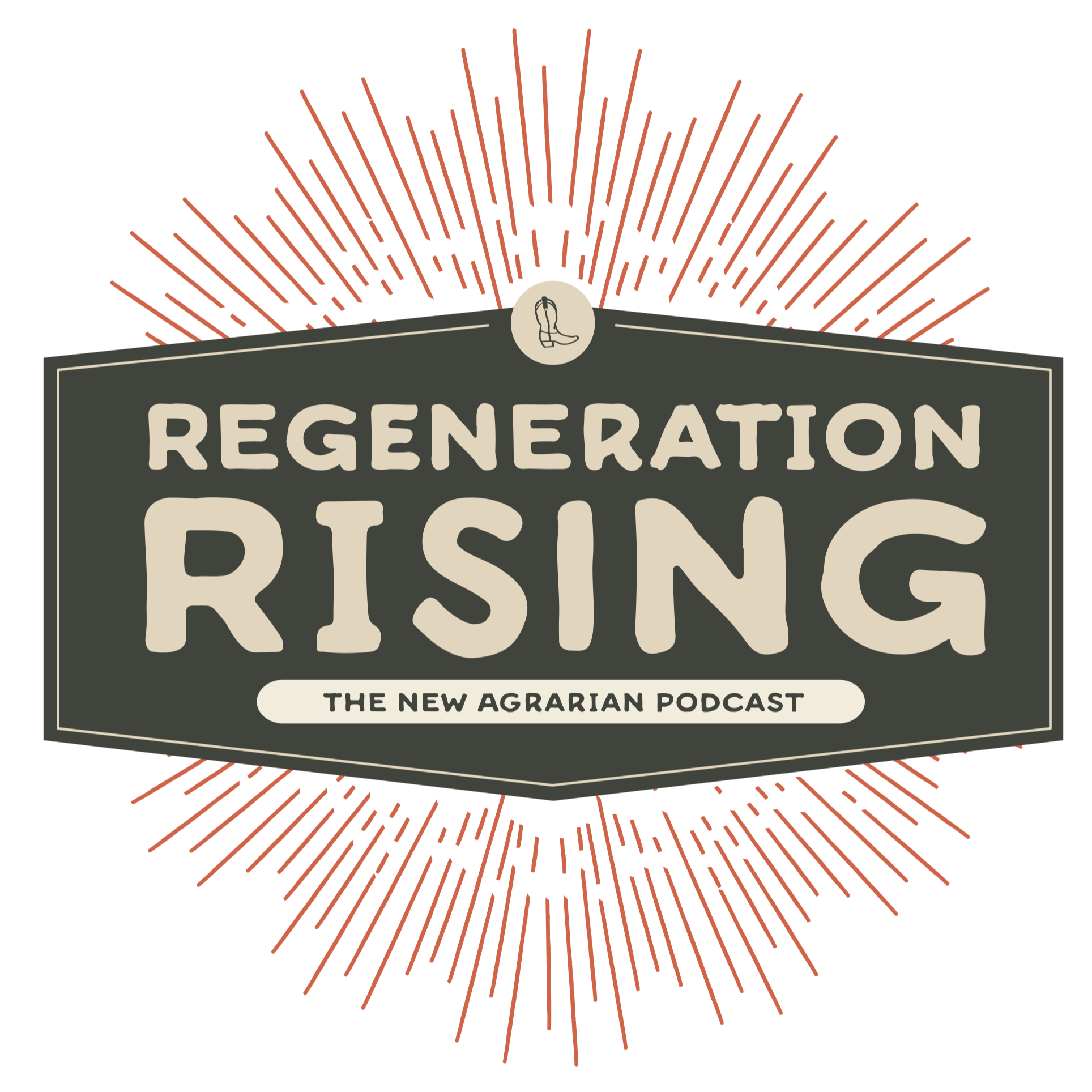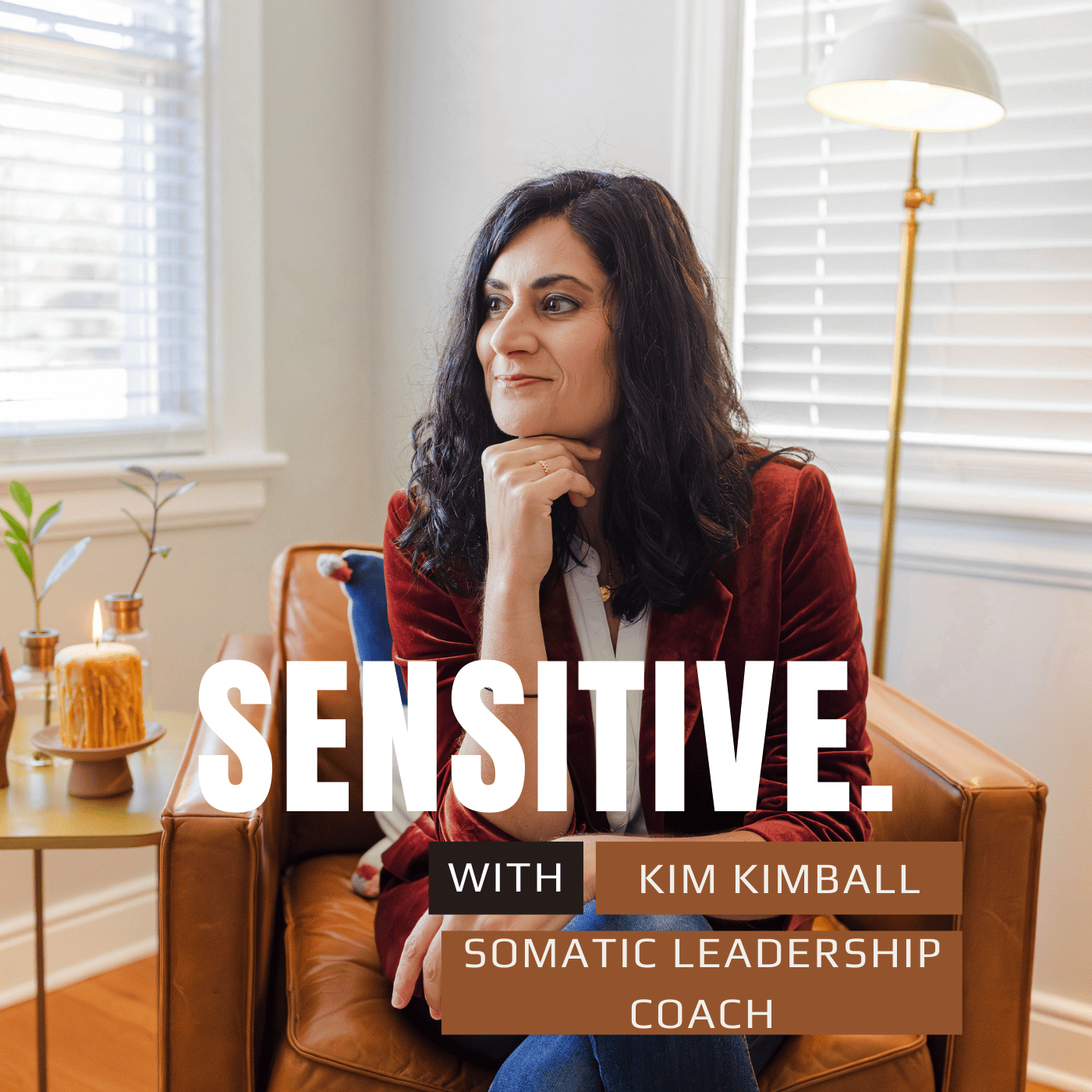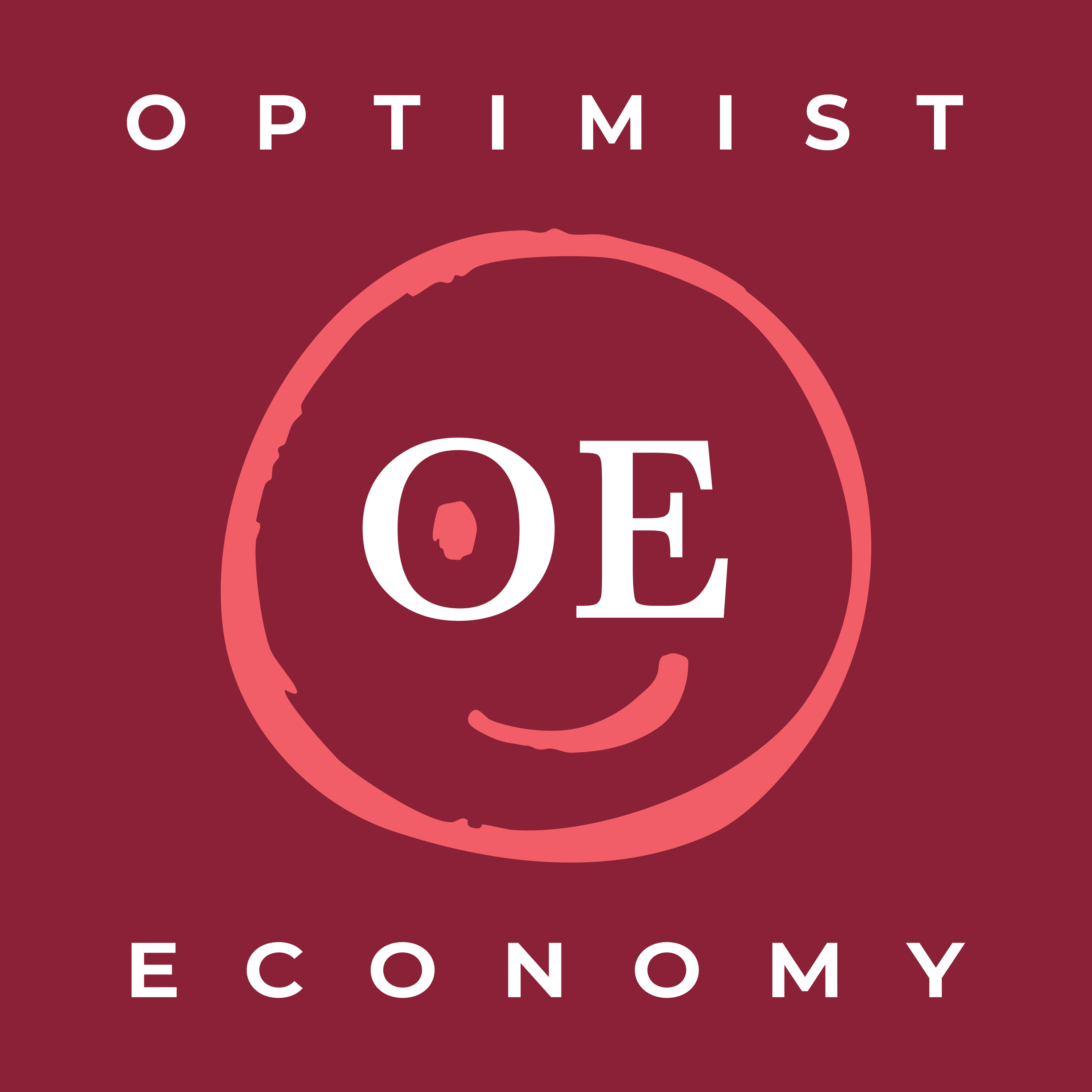
Less House More Resilience
Welcome to the Less House More Resilience podcast, where we delve into tiny and alternative living as a foundation from which we build our resilience in the face of uncertainty. I'm your host, Laura Lynch, and together we'll embark on a journey of exploring how alternative living arrangements allow us to activate our adaptable resources and build unconventional and multi-dimensional wealth.
Through captivating interviews, invaluable industry resources, and personal insights, this podcast aims to guide you towards a life of resilience. By unpacking a fuller definition of wealth and exploring unconventional living arrangements we will unlock a deeper connection to the things that truly matter. Join me in this time of change as we redefine the meaning of security and challenge the status quo.
Laura Lynch, CFP® ABFP™ is the founder of The Tiny House Adviser, Host of Less House More Resilience podcast and financial wellness guide at Alt American Dream. She guides others along the path of tiny and alternative housing.
Laura's journey to tiny house living began with her own quest for financial freedom and a desire to live a life that aligned with her values. After experiencing the emotional and financial burdens of conventional home-ownership, Laura and her partner Eric embarked on a journey to build their own tiny house, finding peace and liberation in their alternative living arrangement.
Laura holds a Master of Education (M. Ed.) degree and is a Certified Financial Planner Practitioner and Accredited Behavioral Financial Professional.
With years of experience in the financial planning industry, Laura has honed her expertise in helping clients navigate the complex world of personal finance. Her focus on alternative living arrangements, allows her to provide specialized guidance to those seeking financial resilience through downsizing and embracing a less conventional life.
Less House More Resilience
Finding Freedom in Tiny Living
Use Left/Right to seek, Home/End to jump to start or end. Hold shift to jump forward or backward.
In this episode, Laura reflects on her first 90 days of living in a tiny house, discussing the motivations behind tiny living, including simplicity, financial freedom, sustainability, affordability, and minimalism. She shares her personal experiences and insights, revealing that while some aspects of life have become simpler, others have grown more complex. Laura emphasizes the importance of choosing one's challenges in life and how tiny living can provide the freedom to focus on what truly matters.
For full show notes and more information visit: https://bit.ly/3TwrbUV
Go to thetinyhouseadviser.com
It takes a brave and independent mindset to go tiny. If you are trying to figure out your tiny pivot, this podcast is here to inspire and connect you with the other unconventional, gritty, inspirational people within this community. I am Laura Lynch, your tiny house friend and host. On this show, we are always going to come back to money because as a financial planner, this is the question I hear the most. How do I make this work for me financially? Well, that's my jam, so jump in, let's go. New episodes drop every Thursday. Hey everybody, Laura here. This is episode 69. We have been in our tiny house for 90 days as of just a couple of days ago in September. And so I thought I would take a little time to talk about how things are playing out in terms of the motivations for tiny living. Often we hear people talk about things like simplicity, financial freedom, sustainability, affordability, minimalism. These are all reasons why people are attracted to a tiny home or tiny living of some sort. And so now having been full time in this life for a quarter of a year. I have some discoveries that I thought I would share in reflection on these points. Definitely there are some what I would sort of call surprises in terms of the fact that maybe I thought things would go one way and they've gone another way. So I will start by talking about simplicity, which I think is probably one of the key reasons why we think about tiny living. It seems like the modern world that we live in is so complex. And I know that adulting and all of the things that come with that feel overwhelming. Keeping track of all of our financial obligations and our protection of ourselves from an insurance perspective, managing families and kids and careers and relationships, expectations, trying to plan for today and plan for the future and plan for something in between, it can be very overwhelming. And so we think that having a smaller footprint, a smaller house, a smaller dwelling, will force some simplicity in our life. And I just had a conversation with someone a couple days ago where they were, we were talking about the complexity of life and entrepreneurship. And this person asked me if there were areas of my life where I had forced simplicity in order to, you know, take a break in those areas of my life. I'd love to say yes. But actually, I think my life is probably more complex today than it was perhaps a year ago. Though there are a lot of things that are still playing out that will result in more simplicity. But the reality is that if you change your career or start your own business as part of your tiny house journey, that will bring with it a whole learning curve and new complexities to life. Obviously, folks that are retiring into tiny living, that retirement has its own set of complexities that are unique to that chapter of life. I don't know that life ever gives us that much of a break, even if we shrink our roof. I feel very very noticeable. I'm definitely noticing the increased complexity of life and, and I don't think it's just about our choices. I don't think it's just about our lifestyle. I just think that a life is complex and things are getting harder in my opinion, to keep track of to keep all the balls in the air is getting harder. And even though There are many parts of our life that are made simpler by certain technological solutions. For example, scheduling, much easier these days. But other parts are getting harder because more research is required or a new system has to be learned or changes or security of our data or keeping up with new information or updates on the things that have been a major part of our life. These are all areas of complexity that we just have to always be staying on top of. And so this to the actual specifics of living in 300 square feet as opposed to 2300 square feet, I think that there are certain areas that are simpler. For example, I haven't missed a single thing in my kitchen that I got rid of. This smaller footprint of my kitchen makes me more efficient in what I'm doing. I don't feel like I'm walking quite so far to fetch that whisk that I need or put all the pieces of a recipe together. It's all much more tightly contained. And that also requires me to be more efficient with what I keep in the space. but I think that I do feel an added bit of simplicity in that aspect. We have added another dog to our tiny house due to, you know, a sort of needy puppy out there. And so now I have three dogs underfoot in my kitchen. And even when I was in a much larger kitchen, my dog still wanted to be right underneath me all the time. So it feels complex having three dogs in here, but at the same time, if I had three dogs in any other kitchen, they would be acting just the same. They'd be right on top of me because that's the way the dogs are. from a simplicity perspective, there are things that maybe are a little bit easier in terms of just less stuff to keep track of. We definitely downsized. the number of outfits that I have available. Maybe that makes it a little bit easier. The lifestyle I've chosen is a little bit more casual, so I can kind of pull from my casual bins and not be so worried about whether or not I have the perfect earrings for my outfit. So, yep, there are areas that are simpler, but life is still going on in the world around us. We are not hiding. from the world and so we are still dealing with a lot of complexity. So I'll kind of take that and talk about financial freedom because I know that this is another hot, hot reason for wanting to spend less on our home. And I do think that as I've told everybody so many times, the tiny home enabled choices that wouldn't otherwise have been possible. I would not have launched this podcast. Obviously I wouldn't have launched my firm. I wouldn't be able to be creating new ideas for business and for income. I wouldn't be able to focus on some of the regenerative work I wanna do with some permaculture design on our land. All of these things were enabled by getting rid of the American dream home. And so that financial freedom piece is 100 % a reality for our situation. though our situation is caused by having built the thing from cash and hard work and repurposed materials some time ago. And so that financial freedom gift that comes with our tiny house is not the reality for everyone because if a home is purchased, there is going to be some string attached to getting that thing paid off, even if it's a shorter timeframe. and a smaller ticket item, it still has to be taken care of. So I think financial freedom is kind of the long play in the tiny home equation. But definitely I 100 % feel more financially free after 90 days here than I did in my past. corporate life and past mortgage situation. So I talk a lot about this financial freedom piece when I speak in front of tiny events, which I'm gonna be doing this weekend. And I feel like the equation of purchasing a tiny home or building a tiny home is just putting folks ahead of the curve in terms of being able to have control over their time. to have their time autonomy, which is what we all really want. We wanna be able to make decisions about how we spend our time and not be trapped in doing things that just have to be done in order to pay the mortgage and keep all the bills up. So whenever we reduce our overall cost of housing, that is the largest pay raise we can give ourselves, which if we use that appropriately, definitely can help leverage some financial freedom. to our life and maybe it's not complete, maybe it's never complete to be honest, because we're all tied into having to buy certain things even if we're growing a lot of our own food, we still need money for lots of things in our life. And so we're never completely financially free, but we can definitely get a measure of that by shifting our focus onto things that. resonate with us rather than spending so much of our energy and our time and our human capital on keeping up with the Joneses in terms of the largest home available. So sustainability is also something that is mentioned and coupled up with tiny living. And I think that that is just a matter of how you execute your tiny lifestyle. So in our case, we are harvesting rainwater, which in New Mexico is appreciated. Some states, this is not as allowed. But here it is the way that generations and eons of folks had water as they captured it from the sky. So we have been able to focus on that where you have plans to harvest gray water off of the home to work on some of the shade and western wind block on the tiny home. Definitely some focus there on water usage. We are not solar here. We are tied to the grid. So that is not an effort where we, or not an area where we have focused our sustainability efforts. But overall, our energy use is much reduced, of course, because of the smaller footprint. I also try to make use of the temperature variations and. keep windows open at night and close everything up during the day to hold in the cool air. So these are areas where I feel like we're making significant strides in comparison to when we had 2 ,300 square feet that we were cooling when nobody was in the house. So I feel really good about that effort. This is also the Simplicity, the Financial Freedom has also allowed me to focus on shopping local, on buying from local farmers and feeling really good about the source of our food, which is a function of the community that we chose to be in. So I think the sustainability piece, though it's naturally gonna happen by having a smaller square footage is also part of how you design your tiny life, what utilities, what energy production you bring to the table, how you use your water. how you think about aspect of your home and all of those sorts of things. So definitely good progress there for us in the last 90 days and more plans for that because we have capacity to do better there. The other thing that kind of ties into all of this is the cost of housing affordability. So as I mentioned earlier, whenever we consider the long -term overall cost of owning a regular American dream home, average price in 2023, around $400 ,000, this varies significantly, course, depending on where you are in the country. Anytime you look at a tiny house, you're generally speaking going to have a lower cost of housing. And so the affordability box is just automatically checked just because it takes less resources, it takes less labor, it takes fewer two by fours or steel studs or whatever you build your tiny house out of to build a smaller structure. So certainly there are some expensive pieces to it, appliances, windows, those sorts of things. But at the end of the day, the ticket price is gonna be less. And if you are financing that, you're gonna spend less on interest, which is gonna allow you to then pivot your human capital, your income, your savings to another area of life that's more important to you. So affordability, cost of housing check. Our utility bills here are of course significantly lower than they were before. And, you know, cell phone bill is still the same. Internet is still the same, but energy use is less. And so I feel like the affordability cost of housing is just a slam dunk. If you can find a place to put your tiny house that pairs up with that affordability piece. So minimalism is also a point that people sort of identify with or don't. So I have thought of myself as a very minimalistic person, my husband Eric not so much, but in any case, we are living together with our different views of minimalism in a tiny house. We have downsized radically much of what we owned. We have held some important things that we felt like we might be able to use in future projects. A lot of that being tools and equipment, also some key furniture pieces that we know we'll be using for some of the things that we've got on the horizon. So. Minimalism in terms of having fewer but higher quality things is a great ideal, I feel, that people are really focused on. And we would all love to be able to buy, you know, only those key pieces, clothing pieces from really high quality. Places that we trust where we know that their labor practices are good and their materials will last a long time. Likewise with our household goods, same idea. Can we do that all the time? Probably not. Can we be more intentional in a smaller space? Yes, because there is just less that we need to furnish, less that we need to decorate. For those of us who like to furnish and decorate, maybe that's a real struggle. But in any case, I think that overall, the number of things that I will ultimately take to the landfill, which has kind of been a real mental burden for me over the years of how many things I've thrown away or have donated and knew that they were ultimately probably gonna be thrown away. I don't... I don't want things to be created that are just ending up filling up the earth with plastics and trash. So it's really important to me to reduce the overall number of things that I will throw away. And so I feel good about kind of the repositioning of our lives in that respect, because by having a footprint, a smaller square footage, There is just less that can come here, therefore less that can get thrown away. So I love this sort of, know, forced less shopping that is occurring for all of us and our family. And hopefully we're all being a little bit more mindful in this smaller footprint so that we can, you know, when we you know, pass through this life, we will have created less trash. So all of these things have been something that I have talked to lots of people about when we talk about reasons for tiny living. We often talk about simplicity, financial freedom, sustainability, affordability, minimalism. And so I don't feel maybe because of the slow progression into this lifestyle or the number of months that we were planning or whatever, I don't feel this sudden earth shaking change. And you know, we often have this sort of adaptation where something changes in our life and all of a sudden it's the new normal and we don't even really notice. And so I have over the last 90 days not noticed significantly that our life has changed in terms of my gosh, the less space or, you know, my gosh, the increased simplicity or, my gosh, I feel so financially free. Like all of these things are happening all around, but you have to stop in order to notice them. So I think that it is important as we are considering whether or not tiny living might be a good fit for us. to remember that no matter where we are, there we go, where we are, whatever the expression is, we are wherever we go. And so any of our frustrations in life that already exists probably will go to our new place, that a new geography, a smaller home that's really cute, whatever it is the ideal that we have. Once we reach that place, We're still standing there with whatever that we've been dealing with. And life is just frankly complicated. And the more that we try to create different income streams as an example, or the more that we try to build community and relationships, or do good in our community by adopting the stray puppy, or whatever it is that we see around us and we go, I could, you know, be a part of that or I could help there or I should, you know, I have more time now. I should take that on. The more complex our life gets, regardless of the size of the house that we live in, but we get to, if we're fortunate enough in this life, we get to choose our hard. because life is hard, no matter how we do it, it's hard. And so we, for those of us who are privileged enough to get to choose our path, we get to choose the hard that we wanna wake up to every day for a long time. And so I think it's worth really thinking through what is the hard that I wanna show up for? If the heart that I want to show up for is the conventional path of the American dream house and the corporate career and the ladder climbing and the status signaling, then great, nothing wrong with that. If the heart is about creativity and about community and about building relationships and about shrinking our footprint and about doing better for the earth and doing something different for ourselves, then certainly tiny living is a hard worth showing up for. And there are inherent quickly check the box benefits. But some of the benefits have to be finagled a little bit. So I just, as I was thinking about 90 days, It just didn't feel that catastrophic or significant or monumental. It just felt like more showing up for all the things that are important, but having more freedom to show up for what I think is important and less requirement to show up for what I don't think is important. So I hope that was helpful. and thinking about whether tiny living is for you at some point in the future or something you wanna stay in or something you wanna get in. It isn't a miracle cure for life, but it does allow for more space to focus on the things that are important to you. And it also is just the hard that you choose. if that is what aligns with you. So I'm headed off to Tiny Fest in California this weekend, looking forward to talking to a lot of people. Next episode, I'll come back and recap some of the conversations that I had at Tiny Fest, which I'm super excited to chat with people for a couple days, to see an old friend while I'm out there, and to come back. And we have some great episodes following my return from that. Stay tuned, make sure you subscribe if you find this podcast valuable and share it with a friend who's also in love with tiny living. Hey, thank you for taking the time to listen to Less House More Moolah. I have another free resource on my website for you, the unconventional values quiz. In just two minutes, you can pinpoint your style of freedom seeker, security guardian, adventure enthusiast, or community builder. Check it out at thetinyhouseadvisor .com. one more thing, podcasts don't have algorithms like social media does. They only grow by word of mouth and reviews. If this podcast is helpful to you, would you please post a review on your podcast app and tell a friend who is trying to live a values -based life? It would totally make my day. Please see the show notes for important disclosure regarding the tiny house advisor LLC and this episode.
Podcasts we love
Check out these other fine podcasts recommended by us, not an algorithm.

Mud Talks
Adobe in Action
Regeneration Rising
Regeneration Rising
The Corporate Escapee
Brett Trainor
Breaking Down: Collapse
Kory & Kellan
Sensitive.
Kim Kimball
Optimist Economy
Kathryn Anne Edwards and Robin Rauzi
The Permaculture Podcast
Scott Mann
Down to Earth: The Planet to Plate Podcast
Quivira Coalition and Radio Cafe